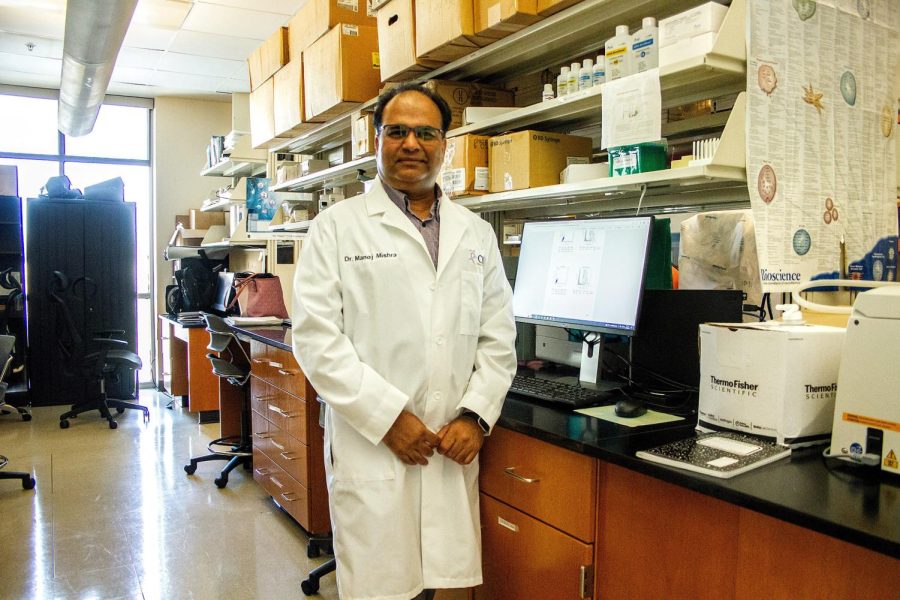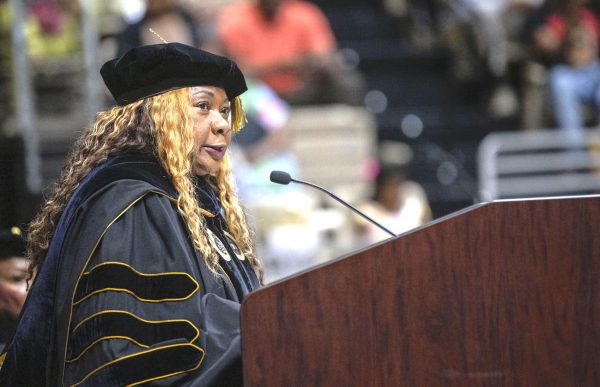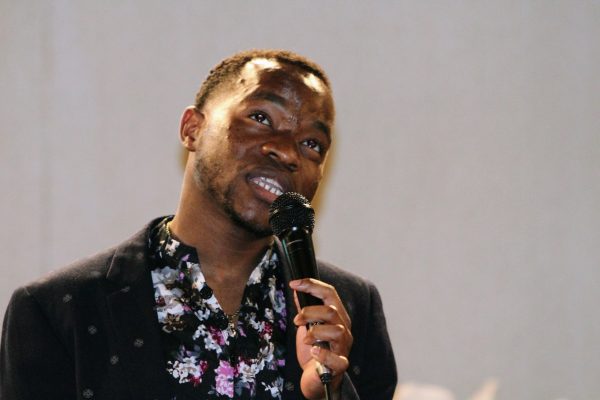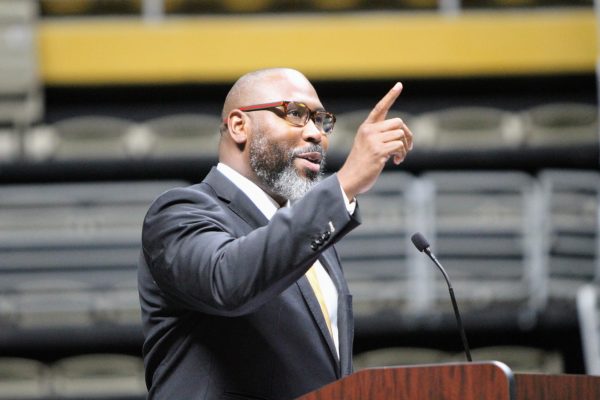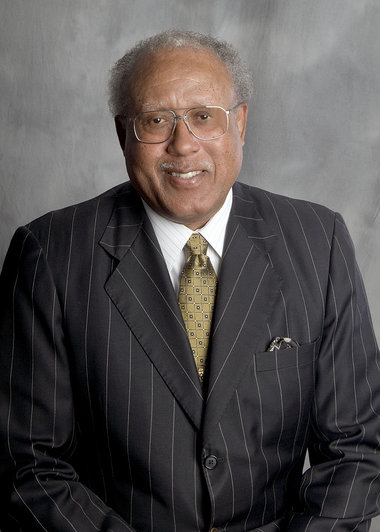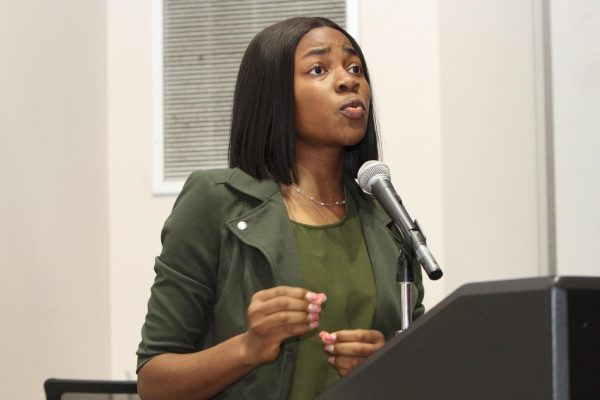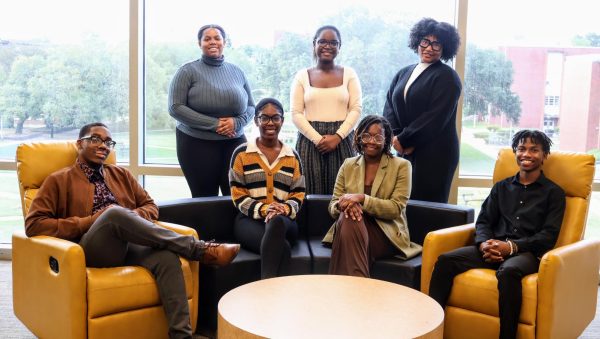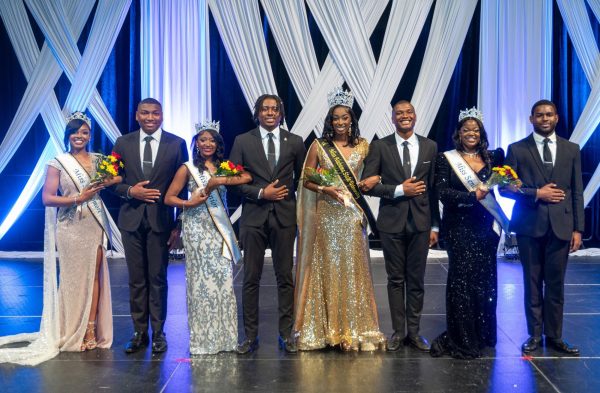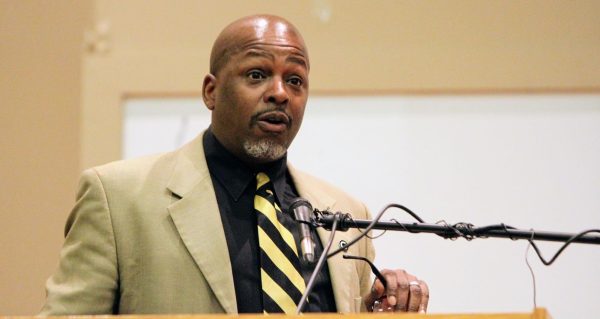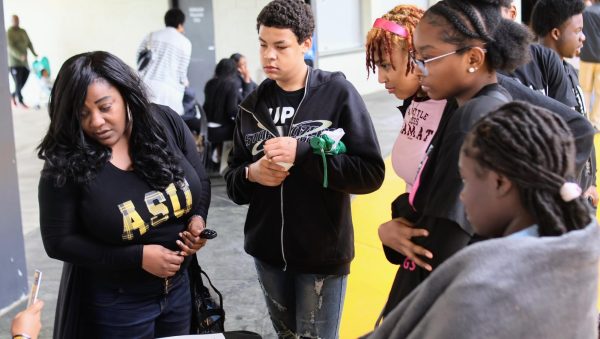Mishra receives cancer research grant $2.6 million
Photo by JAELYN STANSBURY/MANAGING EDITOR
Manoj K. Mishra, Ph.D., founder of the Cancer Biology Research and Training program, raised more than $6.5 million in funding.
January 28, 2023
Alabama State University biology professor Manoj K. Mishra, Ph.D., recently received a $2.6 million grant from the American Cancer Society’s (ACS) Diversity in Cancer Research Institutional Development (DCRID). According to Mishra, this was $400,000 more than what he requested.
“When we write a grant, we insert the budget needed,” Mishra said. “And sometimes when funding they cut the budget, but this time I was really surprised they didn’t cut a single penny, which will help us with faculty.”
The DCRID is an organization with the focus of improving diversity and equity in cancer research. As both a scientist and a professor, Mishra values those two ideals.
“When we talk about diversity, we are talking about any race,” Mishra said. “If you look at the percentages and national data, diverse people are not really represented in that area.”
The grant seeks to help students from African American backgrounds entering the masters program and also gives money to minority faculty so they can engage in cancer research and help students who are pursuing cancer research.
The $2.6 million grant is one of many that Mishra received assistance with his research since arriving at the university. Currently, the Cancer Biology Research and Training (CBRT) program, founded by Mishra, has over $6.5 million in funding.
Mishra has always been interested in cancer research, driven by a desire to help mankind. This compassion was the boost that pushed him to pursue a career in research.
Mishra wants to encourage strength in the research community and help students pursue the research careers of their choice. Since his arrival at the university, Mishra had the goal of turning the CBRT into a cancer center.
“I believe that the program is heading in the right direction,” Mishra said.
He travels monthly to discuss his research to different stakeholders and will travel to Washington D.C and Nashville, Tennessee, in the coming months with a laser focus on garnering support for his students.
When it comes to students struggling financially who may have the ability but not the cash to conduct the research that Mishra does, he states that helping them out with the grants his program receives has always been a priority.
“In the past, we had a grant that supported 133 STEM students,” Mishra said. “Right now, we have another grant that is supporting 150 STEM students every year. My agenda is to always help students and I always keep them in mind when writing grants.”
For years there have been health disparities in the African American community and with his research, Mishra plans to close the gap and help the community.
“There is a proverb that says ‘The charity begins at home,’” he said. “If anybody wants to do something, they have to look at themselves, right? To pursue that agenda, I am collaborating with more than 12 organizations in the Black Belt of Alabama, not only in Montgomery county.”
Mishra has always had solidarity with the minority communities because he likes to think back on his history in India where he was born. He believes that something must be done to uplift the community. “Education is the key to eliminating health disparities.”


